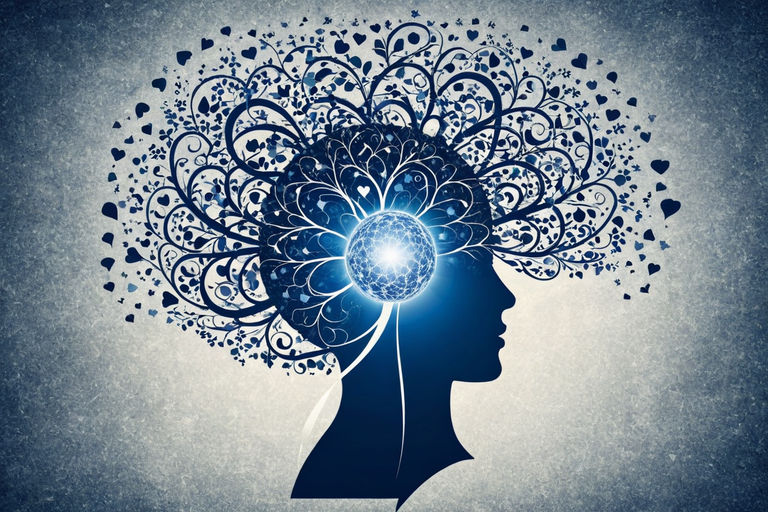Table of Contents
Have you ever found yourself overwhelmed by intense emotions, struggling to understand or control them? Or perhaps you’ve witnessed someone else’s emotional outburst, leaving you bewildered and unsure of how to respond. In today’s fast-paced, high-stress world, emotional intelligence has become a crucial skill – one that can mean the difference between thriving or merely surviving. But what if we told you that developing this invaluable ability is within your reach? Imagine having the power to navigate even the most challenging situations with grace, empathy, and self-awareness. This is the promise of emotional intelligence, and we’re here to guide you on the journey to unlocking your true emotional genius.
Understanding Emotional Intelligence
Before we dive into strategies for developing emotional intelligence, let’s first understand what it is. Emotional intelligence (EQ) refers to the ability to recognize, understand, manage, and reason with emotions – both your own and those of others. It encompasses skills such as self-awareness, self-regulation, motivation, empathy, and social skills.
According to research by the Center for Creative Leadership, individuals with high emotional intelligence tend to be more successful in both their personal and professional lives. They have better relationships, experience less stress and anxiety, and are generally more satisfied with their lives (Source: https://www.ccl.org).

Cultivating Emotional Intelligence
While some may be naturally more emotionally intelligent than others, the good news is that emotional intelligence is a skill that can be developed and improved over time. Here are some strategies to help you unlock your emotional genius:
- Practice Self-Awareness: Developing self-awareness is the foundation of emotional intelligence. Take time to reflect on your emotions, triggers, and patterns of behavior. Keep a journal, meditate, or engage in activities that help you tune into your inner world.
- Develop Empathy: Empathy is the ability to understand and share the feelings of others. Practice active listening, put yourself in others’ shoes, and be curious about their perspectives and experiences.
- Manage Your Emotions: While it’s important to feel your emotions, it’s equally crucial to manage them effectively. Learn techniques like deep breathing, mindfulness, and cognitive reframing to regulate your emotional responses.
- Build Social Skills: Emotional intelligence involves navigating social situations with grace and tact. Work on your communication skills, conflict resolution abilities, and learn to read non-verbal cues.
- Embrace Feedback: Seek out constructive feedback from trusted sources about your emotional intelligence. Be open to learning and growing, and don’t take feedback personally.
- Cultivate Emotional Agility: Emotional agility is the ability to adapt and respond effectively to changing emotional situations. Practice being flexible, resilient, and open to new perspectives.
- Practice Mindfulness: Mindfulness is a powerful tool for developing emotional intelligence. By being present and non-judgmental, you can observe your emotions with greater clarity and respond more thoughtfully.
Remember, developing emotional intelligence is a lifelong journey. Be patient with yourself, celebrate small victories, and embrace the process of continuous growth and self-discovery.

Emotional Intelligence FAQ
How can emotional intelligence benefit me in my daily life?
Higher emotional intelligence can improve your relationships, communication skills, decision-making abilities, and overall well-being. It allows you to navigate challenging situations with greater resilience and empathy.
Can emotional intelligence be learned at any age?
Absolutely! While it may be easier to develop emotional intelligence at a younger age, it’s never too late to start cultivating these skills. With self-awareness, dedication, and practice, anyone can improve their emotional intelligence over time.
How long does it take to develop emotional intelligence?
There is no set timeline, as developing emotional intelligence is a lifelong process of self-discovery and growth. However, with consistent effort and practice, you can start seeing improvements in your emotional awareness and regulation within a few months.
What’s the difference between emotional intelligence and emotional awareness?
Emotional awareness is the ability to recognize and identify your own emotions, which is a crucial component of emotional intelligence. However, emotional intelligence encompasses a broader range of skills, including managing emotions, practicing empathy, and navigating social situations effectively.
Can emotional intelligence help in the workplace?
Yes, emotional intelligence is highly valuable in professional settings. Individuals with strong emotional intelligence often have better leadership skills, work well in teams, handle stress more effectively, and can navigate conflict and challenging situations with greater ease.
How can I measure my emotional intelligence progress?
While there are no definitive tests for emotional intelligence, you can gauge your progress by reflecting on your ability to regulate your emotions, empathize with others, communicate effectively, and handle challenging situations with grace and resilience. Feedback from trusted sources can also provide valuable insights.
Where can I find more information about emotional intelligence?
Here is our selection of useful links for you:
– The Science of Emotional Intelligence (American Psychological Association)
– Emotional Intelligence: Why It Matters and How to Develop It (MindTools)
– The Emotional Intelligence (TalentSmart)
Was this Article Helpful?
We hope that you found this article helpful and informative. We are always striving to provide you with the best content and resources for your wellness. We would love to hear from you and get your feedback and suggestions.
Please visit our Facebook page and leave us a comment or a message. Tell us what you liked or disliked about this article, what you learned or want to learn more about, and what you want us to write about next.
Your input is very valuable to us and helps us improve our work. Thank you for reading and supporting us.
#emotionalintelligence #eq #emotions #selfawareness #empathy #mindfulness #mentalhealth #personaldevelopment #socialskills #success




















